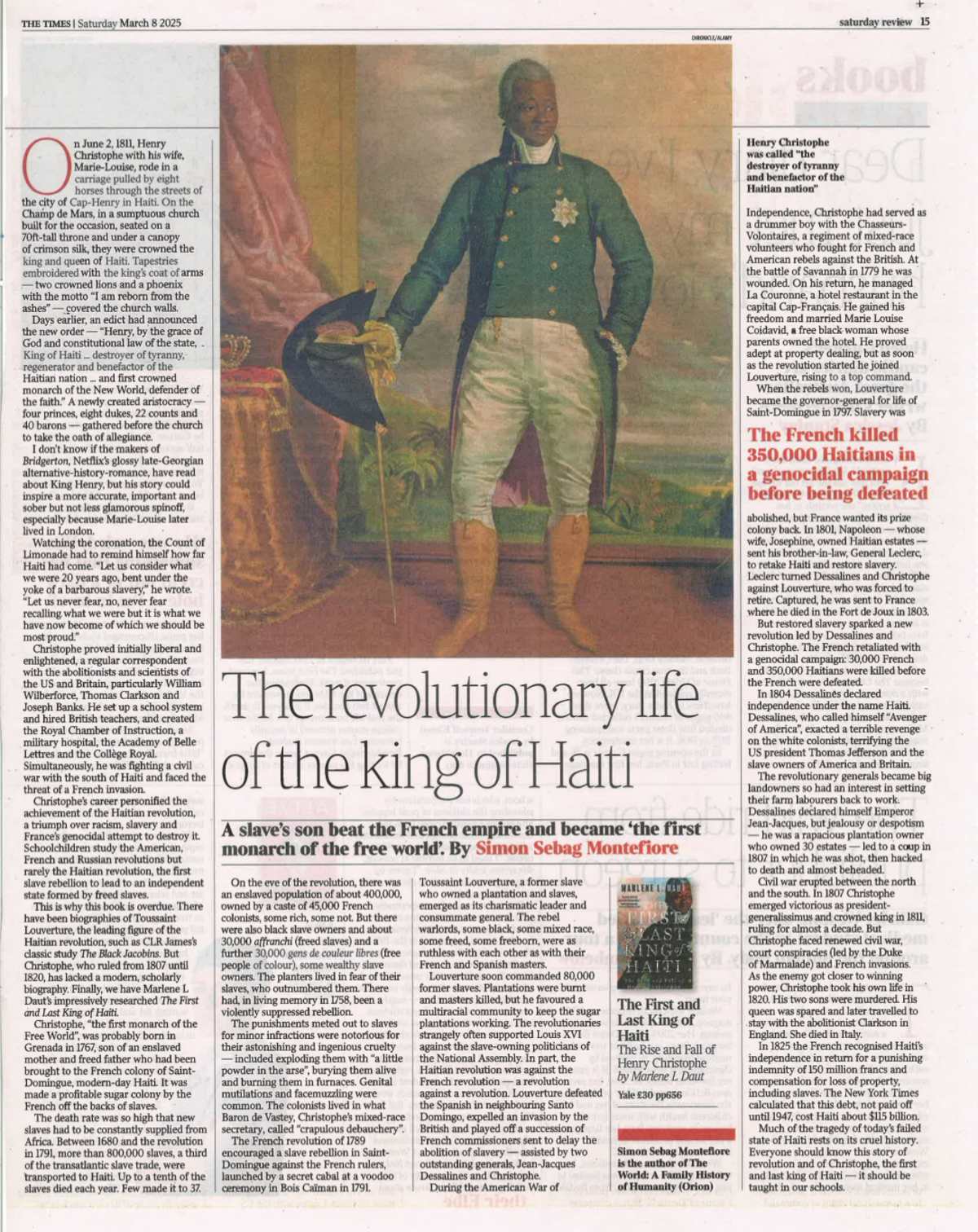The revolutionary life of the king of Haiti: A slave's son beat the French empire and became 'the first monarch of the free world'.
By Simon Sebag Montefiore
8 March 2025
On June 2, 1811, Henry Christophe with his wife, Marie-Louise, rode in a carriage pulled by eight horses through the streets of the city of Cap-Henry in Haiti. On the Champ de Mars, in a sumptuous church built for the occasion, seated on a 70ft-tall throne and under a canopy of crimson silk, they were crowned the king and queen of Haiti. Tapestries embroidered with the king's coat of arms two crowned lions and a phoenix with the motto "I am reborn from the ashes" covered the church walls.
Days earlier, an edict had announced the new order "Henry, by the grace of God and constitutional law of the state, King of Haiti ... destroyer of tyranny, regenerator and benefactor of the Haitian nation ... and first crowned monarch of the New World, defender of the faith." A newly created aristocracy four princes, eight dukes, 22 counts and 40 barons gathered before the church to take the oath of allegiance.
I don't know if the makers of Bridgerton, Netflix's glossy late-Georgian alternative-history-romance, have read about King Henry, but his story could inspire a more accurate, important and sober but not less glamorous spinoff, especially because Marie-Louise later lived in London.
Watching the coronation, the Count of Limonade had to remind himself how far Haiti had come. "Let us consider what we were 20 years ago, bent under the yoke of a barbarous slavery," he wrote. "Let us never fear, no, never fear recalling what we were but it is what we have now become of which we should be most proud."
Christophe proved initially liberal and enlightened, a regular correspondent with the abolitionists and scientists of the US and Britain, particularly William Wilberforce, Thomas Clarkson and Joseph Banks. He set up a school system and hired British teachers, and created the Royal Chamber of Instruction, a military hospital, the Academy of Belle Lettres and the Collège Royal.
Simultaneously, he was fighting a civil war with the south of Haiti and faced the threat of a French invasion.
Christophe's career personified the achievement of the Haitian revolution, a triumph over racism, slavery and France's genocidal attempt to destroy it. Schoolchildren study the American, French and Russian revolutions but rarely the Haitian revolution, the first slave rebellion to lead to an independent state formed by freed slaves.
This is why this book is overdue. There have been biographies of Toussaint Louverture, the leading figure of the Haitian revolution, such as CLR James's classic study The Black Jacobins. But Christophe, who ruled from 1807 until 1820, has lacked a modern, scholarly biography. Finally, we have Marlene L Daut's impressively researched The First and Last King of Haiti.
Read more here: https://www.thetimes.com/article/5ee3e1dc-e7c3-40b5-aea2-cc958b10ef42
